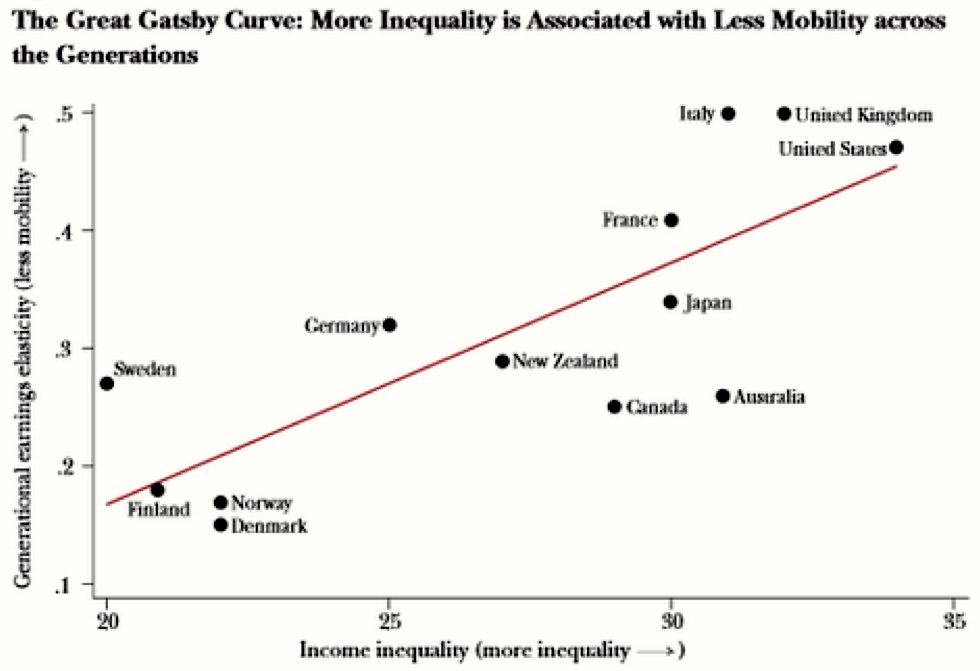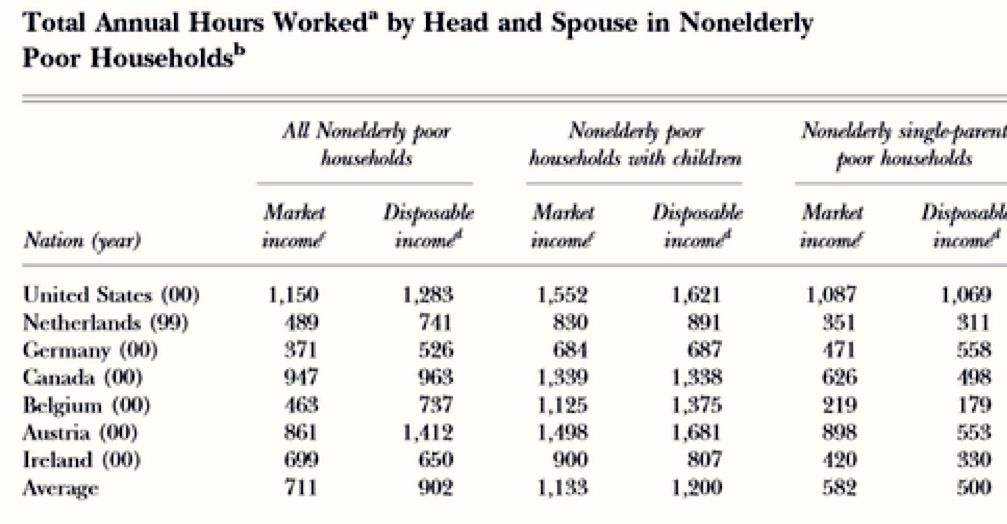The Real Poverty Trap by Paul Krugman From the New York Times 4 March 2014
Earlier I noted that the new Ryan poverty report makes some big claims about the poverty trap, and cites a lot of research — but the research doesn’t actually support the claims. It occurs to me, however, that the whole Ryan approach is false in a deeper sense as well.
How so? Well, Ryan et al — conservatives in general — claim to care deeply about opportunity, about giving those not born into affluence the ability to rise. And they claim that their hostility to welfare-state programs reflects their assessment that these programs actually reduce opportunity, creating a poverty trap. As Ryan once put it,
we don’t want to turn the safety net into a hammock that lulls able-bodied people to lives of dependency and complacency, that drains them of their will and their incentive to make the most of their lives.
OK, do you notice the assumption here? It is that reduced incentives to work mean reduced social mobility. Is there any reason to believe this as a general proposition?
Now, as it happens the best available research suggests that the programs Ryan most wants to slash — Medicaid and food stamps — don’t even have large negative effects on work effort. There is, however, some international evidence that generous welfare states have an incentive effect: America has by far the weakest safety net in the advanced world, and sure enough, the American poor work much more than their counterparts abroad:
Great! So poor Americans aren’t condemned to lives of complacency that drain their wills — or at least not nearly as much as the poor in other countries. So we must have much more upward social mobility than they do, as our poor make the most of their lives, right?
Um, no.:
 In fact, the evidence suggests that welfare-state programs enhance social mobility, thanks to little things like children of the poor having adequate nutrition and medical care. And conversely,of course, when such programs are absent or inadequate, the poor find themselves in a trap they often can’t escape, not because they lack the incentive, but because they lack the resources.
In fact, the evidence suggests that welfare-state programs enhance social mobility, thanks to little things like children of the poor having adequate nutrition and medical care. And conversely,of course, when such programs are absent or inadequate, the poor find themselves in a trap they often can’t escape, not because they lack the incentive, but because they lack the resources.
I mean, think about it: Do you really believe that making conditions harsh enough that poor women must work while pregnant or while they still have young children actually makes it more likely that those children will succeed in life?
So the whole poverty trap line is a falsehood wrapped in a fallacy; the alleged facts about incentive effects are mostly wrong, and in any case the entire premise that work effort = social mobility is wrong.

